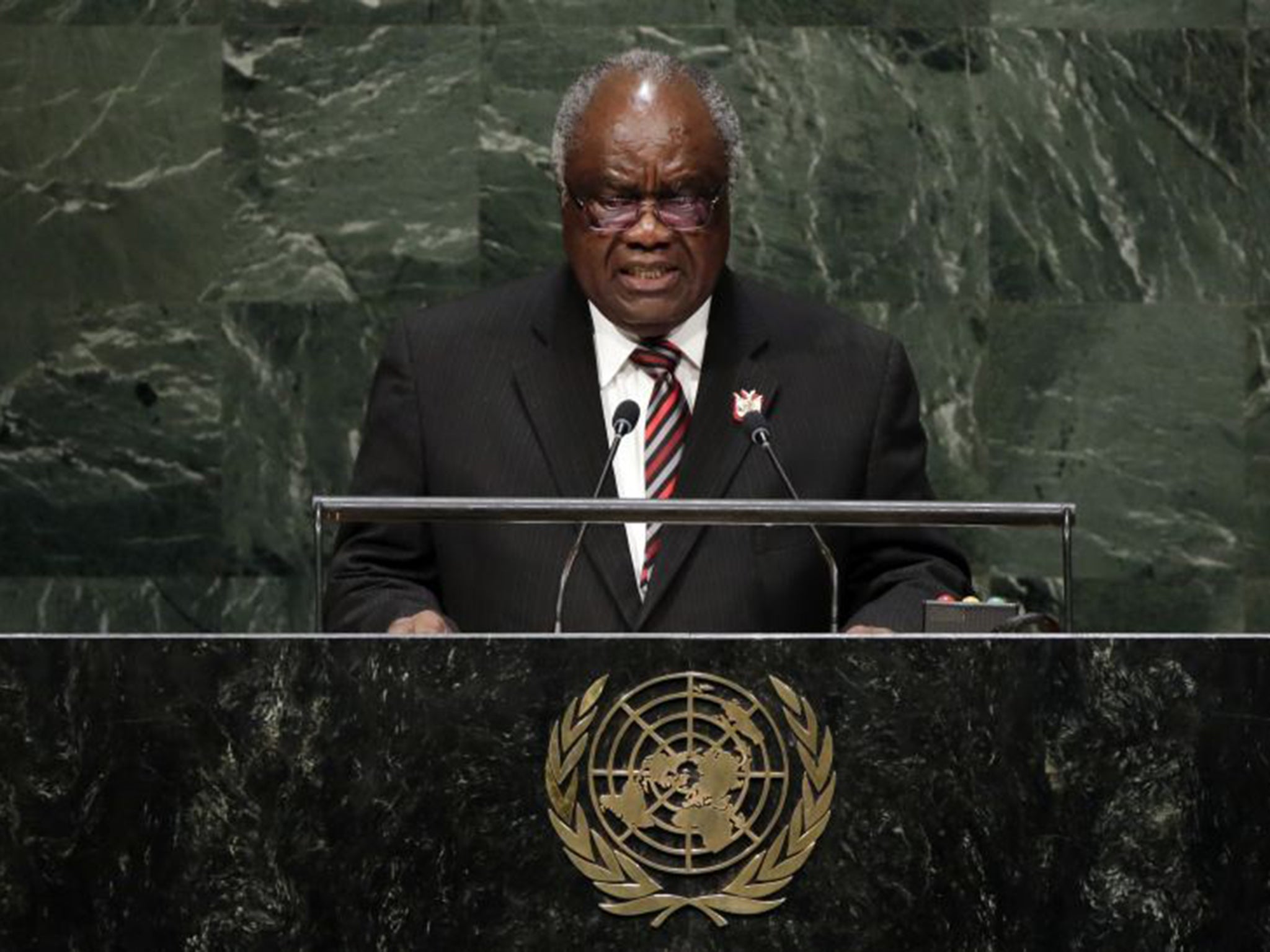African leadership prize: Namibia's outgoing President Hifikepunye Pohamba scoops the world's most lucrative award worth $5m
The prize was set up by a British-Sudanese telecoms magnate to find a leader who had been democratically elected, governed well and then left office

Four years have passed since an African leader fitted the criteria to qualify for the world’s most lucrative award. The $5m (£3.2m) prize was set up by a British-Sudanese telecoms magnate to find a leader who had been democratically elected, governed well and then left office.
While the first two criteria have been fulfilled, the last has been seemingly harder to achieve in a continent where leaders often cling to power. Today, however, it was announced that Namibia’s outgoing President, Hifikepunye Pohamba, had won the Mo Ibrahim Foundation’s African leadership prize, won only three times since 2007.
The prize committee praised Mr Pohamba’s commitment to the rule of law and respect for the constitution, as well as his promotion of gender equality. “His ability to command the confidence and the trust of his people is exemplary,” said committee chair Salim Ahmed Salim.
Since its inception, the prize has gone to three former presidents, from Cape Verde, Mozambique and Botswana.
Mr Pohamba, 79, was elected President in 2005 and steps down this month. The elections held under his leadership were considered by observers to be free and fair. He was a founding member of the now ruling South West African People’s Organisation, playing a central role in decades of struggle for independence from South Africa. The $5m is given over 10 years. After that, he receives $200,000 a year for life.
The award’s founder, Mo Ibrahim, made billions from investing in Africa and launched the prize to encourage African leaders to leave power peacefully. Mr Ibrahim said most Africans lived in better governed, more just countries than a decade ago, but the improvement was “not vast”. “It’s a long process,” he said. “We need to appreciate it’s a tough job, it can’t be done overnight.”
Reuters
Subscribe to Independent Premium to bookmark this article
Want to bookmark your favourite articles and stories to read or reference later? Start your Independent Premium subscription today.

Join our commenting forum
Join thought-provoking conversations, follow other Independent readers and see their replies